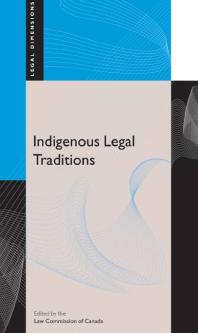

Most ebook files are in PDF format, so you can easily read them using various software such as Foxit Reader or directly on the Google Chrome browser.
Some ebook files are released by publishers in other formats such as .awz, .mobi, .epub, .fb2, etc. You may need to install specific software to read these formats on mobile/PC, such as Calibre.
Please read the tutorial at this link. https://ebooknice.com/page/post?id=faq
We offer FREE conversion to the popular formats you request; however, this may take some time. Therefore, right after payment, please email us, and we will try to provide the service as quickly as possible.
For some exceptional file formats or broken links (if any), please refrain from opening any disputes. Instead, email us first, and we will try to assist within a maximum of 6 hours.
EbookNice Team

Status:
Available0.0
0 reviews
ISBN-10 : 0774855770
ISBN-13 : 9780774855778
Author: Law Commission of Canada, Dawnis Kennedy, Andree Lajoie, Ghislain Otis, Ted Palys, Wenona Victor, Paulette Regan, Perry Shawana
Although Indigenous peoples had their own systems of law based on their social, political, and spiritual traditions, under colonialism their legal systems have often been ignored or overruled by non-Indigenous laws. Today, however, these legal traditions are being reinvigorated and recognized as vital for the preservation of the political autonomy of Aboriginal nations and the development of healthy communities. The essays in this book present important perspectives on the role of Indigenous legal traditions in reclaiming and preserving the autonomy of Aboriginal communities and in reconciling the relationship between these communities and Canadian governments. Contributors include Andrée Lajoie, Minnawaanagogiizhigook (Dawnis Kennedy), Ghislain Otis, Ted Palys and Wenona Victor, Paulette Regan, and Perry Shawana. Common threads linking the essays include the relationship between Indigenous and Canadian legal orders, the importance of Indigenous legal traditions for Aboriginal communities’ autonomy, and the ways in which these traditions might be recognized and given space in the Canadian legal landscape. In its examination of different aspects of and models for the recognition of Indigenous legal orders, this book addresses important issues relating to legal pluralism. It will be of interest to a wide audience including lawyers and legal academics, teachers, students, policy makers, and members of Aboriginal communities.
1 “Getting to a Better Place”: Qwi:qwelstóm, the Stó:lō, and Self-Determination
2 An Apology Feast in Hazelton: Indian Residential Schools, Reconciliation, and Making Space for Ind
3 Reconciliation without Respect? Section 35 and Indigenous Legal Orders
4 Legal Processes, Pluralism in Canadian Jurisprudence, and the Governance of Carrier Medicine Knowl
5 Territoriality, Personality, and the Promotion of Aboriginal Legal Traditions in Canada
indigenous legal traditions
the encyclopedia of native american legal tradition
indigenous legal traditions canada
indigenous legal tradition
legal traditions of the world 5th edition pdf
Tags: Indigenous Legal, Traditions, Law Commission of Canada, Dawnis Kennedy, Andree Lajoie, Ghislain Otis, Ted Palys, Wenona Victor, Paulette Regan, Perry Shawana